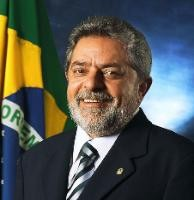Brazil has had a lot to celebrate recently. Its economy has been growing at a slow but healthy clip, thanks to prudent fiscal policies that have helped it weather the financial crisis better than many. The nation has taken on an increasingly important role in matters of regional diplomacy and has emerged as the de facto political and economic leader of Latin America. Foreign leaders as varied and diverse as U.S. President Barack Obama, Iranian President Mahmoud Ahmadinejad, and South African President Jacob Zuma have all recently met with Brazilian President Luiz Inácio Lula da Silva in efforts to strengthen diplomatic and economic ties. Everyone seems to want a piece of Brazil, including the International Olympic Committee, which awarded Rio de Janeiro the 2016 Olympic Games earlier this month.
But ever since Oct. 17, the spotlight has been on Rio de Janeiro -- and Brazil -- for all the wrong reasons. Just two weeks after the Olympic Games announcement, a deadly fight between rival drug cartels broke out in the city's Morro dos Macacos favela, resulting in more than 40 deaths, the destruction of 10 buses, and the takedown of a police helicopter. The goodwill generated by Rio's surprising Olympics victory inevitably turned to questions regarding safety. Gruesome images and video in local media of the chopped up remains of a man left in a shopping cart, and a video showing police robbing stolen property from two thieves while ignoring the original owner and victim as he lay dying on the ground, gave the impression of uncontrollable violence and police corruption.
With international attention at a peak, Brazil is taking the security issue seriously. The government of Rio de Janeiro plans to add 47 police stations to various favelas -- of which there are more than 1,000 -- by 2010. On Oct. 27 , the federal government announced plans to increase spending to $142.6 million by the end of this year to bolster Rio's police force -- more than doubling the initial budgeting. Brazilian Justice Minister Tarso Genro called for stricter punishment for drug dealers, while Rio de Janeiro's Secretary of Security José Mariano Beltrame recently called the fighting that took place on Oct. 17, "our Sept. 11."

